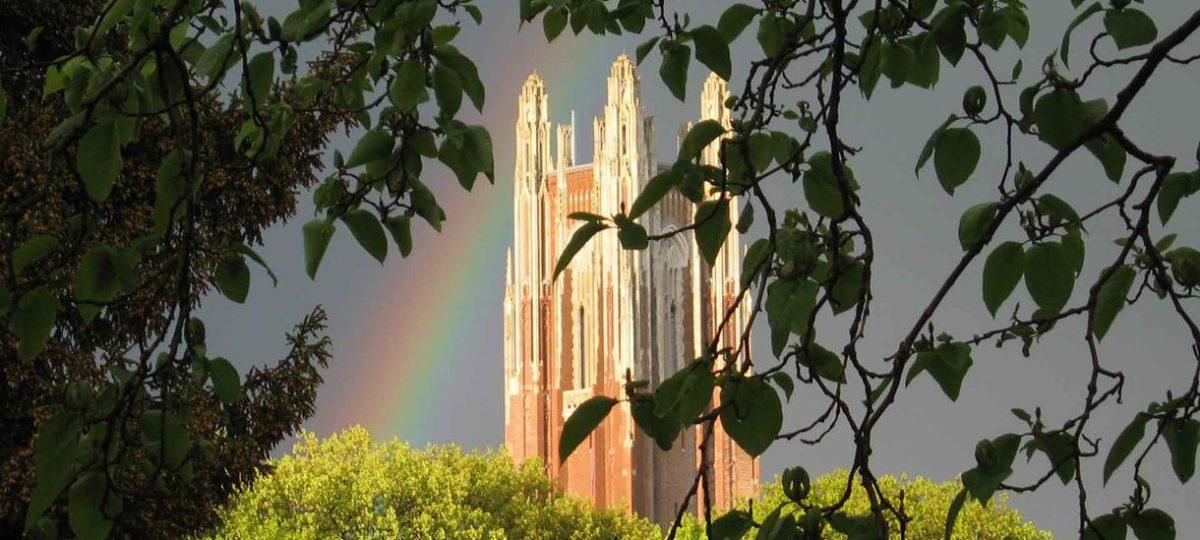In June, many cities hosted pride parades and festivals in public support of the LGBTQ+ community, and the Wellesley community took time to reflect on the different ways to honor and celebrate pride. This year, however, Pride looked different for everyone. Following over a year of heavy restrictions due to the COVID-19 pandemic, some Wellesley students were eager to return to in-person celebrations.
One such person was alum Sarah Young ’20 who chose to travel to New York City to celebrate Pride this year, as all of the pride events in her hometown were hosted virtually.
“At Wellesley it’s easy to be proud and openly LGBTQIA+, but after spending this last year ‘outside of the bubble,’ it’s been harder to celebrate and find community, especially with the pandemic,” Young said. “That’s why it was so meaningful to me to be able to participate in the event in New York City.”
For Young, this Pride Month was an opportunity to attend and consciously support LGBTQ+ events organized in the wake of increased violence against LGBTQ+ people of color.
“I took a bus to New York City so I could go to the Reclaim Pride/Queer Liberation March,” she said. “The goal was to have an event that was actually by and for the community, instead of one controlled by corporations and involving a police presence.”
Angelina Li ’23, one of the editors-in-chief of Wellesley’s Kaleidoscope LGBTQ+ literary magazine, also remarked on the importance of pride parades and festivals for remembering the history of pride. They also stressed the importance of centering QTPOC experiences in the festivities.
“I think there’s something really important about public displays of pride, because pride started as a protest. In countries where being out and proud of being LGBTQ+ is still censored or criminalized, pride parades are still a protest—even a life-threatening one,” Li said. …”In the U.S., meaningful pride parades are centering QTPOC visibility and tackling inequalities within the movement.”
Li, who currently works for a news organization as well as Kaleidoscope Magazine, said that they have used pride month as an opportunity to pitch stories that center queer voices to the newspaper they work for.
“Part of pride for me will always be taking this moment to push queer representation in predominantly cisgender, heterosexual spaces,” they said.
Director of LGBTQ+ Programs and Services AJ Guerrero spoke to the different ways that LGBTQ+ individuals celebrate pride, both privately and publicly, in ways that are not confined to the month of June, or to highly publicized festivals.
“It’s not always a parade or a big event like Boston Pride…sometimes [pride] looks like celebrating within yourself,” she said. “You know, sitting in your room listening to Girl in Red or Hayley Kiyoko isn’t the kind of thing that’s shown in the media because it’s not ‘exciting,’ but that kind of celebrating yourself is just as important”
Li shared a similar sentiment, reflecting on the ways that they see pride as an opportunity to explore their own identity and LGBTQ+ history through their writing and art in online spaces.
“Pride for me is about reaffirming that I exist, that I’m valid and my experiences are valid, and I don’t have to apologize for, or try to make my experiences more digestible,” Li said “It’s about sharing my experiences in a way that’s honest to me.”
Since the beginning of the COVID-19 pandemic, Guerrero has been working to provide programs and services to students studying remotely, away from the predominantly LGBTQ+ Wellesley student population. In October, 2020, the department of LGBTQ+ Programs and Services hosted a series of events highlighting LGBTQ+ voices including a virtual open mic night, queer Christian retreat and lectures on queer history. Guerro has also been working on compiling resources specifically for trans students on and off campus, including a guide to all of the gender-neutral bathrooms around Wellesley.
While Guerrero recognizes the challenges for many queer students who had to leave campus abruptly at the start of the pandemic, this year during Pride, she looks forward to welcoming students back to campus in the fall.
“There is a privilege at Wellesley, that at least you can be out to your peers if you want to be…over half of the student population identifies as LGBTQ, and that in itself is a celebration,” Guerrero said.






